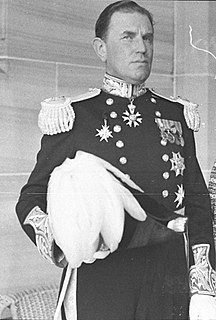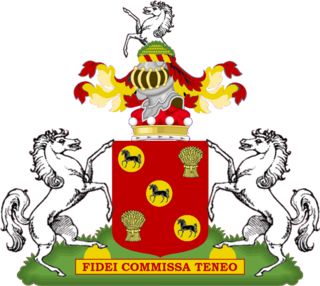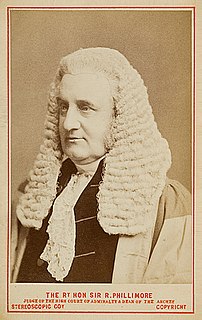Notes
This article needs additional citations for verification .(September 2014) |
Baron Layton, of Danehill in the County of Sussex, [1] is a title in the Peerage of the United Kingdom. It was created in 1947 for Sir Walter Layton, a prominent economist, editor and newspaper proprietor. He was editor of The Economist from 1922 to 1938. As of 2019 [update] the title is held by his grandson, the fourth Baron—son of the first Baron's younger son David Layton—who succeeded in 2018.
The heir apparent is the present holder's son, the Hon. Jeremy Layton (b. 1978).
This article needs additional citations for verification .(September 2014) |

Viscount Runciman of Doxford, of Doxford in the County of Northumberland, is a title in the Peerage of the United Kingdom. It was created in 1937 for the Hon. Walter Runciman, a politician whose career included service as a Member of Parliament, President of the Board of Trade and Lord President of the Council. He was the son and heir apparent of the shipping magnate and Liberal politician Walter Runciman, who had been created a Baronet in the Baronetage of the United Kingdom in 1906 and Baron Runciman, of Shoreston in the County of Northumberland, in 1933, also in the Peerage of the United Kingdom. As his father was still alive at the time of the creation of the viscountcy the title of this peerage was Runciman of Doxford rather than simply Runciman. As of 2020 the titles are held by the first Viscount's great-grandson, the fourth Viscount, who succeeded his father in 2020. He is a well-known political scientist at the University of Cambridge.
Baron Gretton, of Stapleford in the County of Leicester, is a title in the Peerage of the United Kingdom. It was created in 1944 for the brewer and Conservative politician John Gretton. He was head of the brewery firm of Bass, Ratcliff & Gretton Ltd of Burton upon Trent and also represented Derbyshire South, Rutland and Burton in Parliament. His son, the second Baron, also represented Burton in the House of Commons as a Conservative. As of 2017 the title is held by the latter's grandson, the fourth Baron, who succeeded his father in 1989. His mother, Jennifer Gretton, Lady Gretton, was Lord Lieutenant of Leicestershire between 2003 and 2018.

Baron Grimston of Westbury, of Westbury in the County of Wiltshire, is a title in the Peerage of the United Kingdom. It was created in 1964 for the Conservative politician and former Deputy Speaker of the House of Commons, Sir Robert Grimston, 1st Baronet. He had already been created a baronet in 1952. Grimston was the son of Reverend Canon the Hon. Robert Grimston, third son of James Grimston, 2nd Earl of Verulam. As of 2017 the titles are held by his grandson, the third Baron, who succeeded his father in 2003.
Baron Kershaw, of Prestwich in the County Palatine of Lancaster, is a title in the Peerage of the United Kingdom. It was created in 1947 for Fred Kershaw, who later served as a Lord-in-waiting in the Labour government of Clement Attlee. As of 2010 the title is held by his grandson, the fourth Baron, who succeeded his father in 1962.

Baron Wakehurst, of Ardingly in the County of Sussex, is a title in the Peerage of the United Kingdom. It was created on 29 June 1934 for the Conservative politician Gerald Loder, fifth son of Sir Robert Loder, 1st Baronet. He had previously represented Brighton in the House of Commons and was the creator of Wakehurst Place Gardens in Ardingly, West Sussex. His only son, the second Baron, was also a Conservative politician and served as Governor of New South Wales and later as Governor of Northern Ireland. As of 2010 the title is held by the latter's eldest son, the third Baron, who succeeded in 1970.
Baron Simon of Wythenshawe, of Didsbury in the City of Manchester, is a title in the Peerage of the United Kingdom. It was created in 1947 for Ernest Simon, an industrialist and politician. He had previously served as a member of the Manchester City Council and as Lord Mayor of Manchester and is chiefly remembered for the slum clearances and housing projects he initiated in the city, notably the Wythenshawe estate. Simon also sat as a Liberal Member of Parliament for Manchester Withington, but joined the Labour Party in 1946. As of 2018 the title is held by his granddaughter, the third Baroness, who succeeded her father in 2002.
Baron Spens, of Blairsanquhar in the County of Fife, is a title in the Peerage of the United Kingdom. It was created on 20 August 1959 for the lawyer and Conservative politician Sir Patrick Spens. As of 2017 the title is held by his great-grandson, the fourth Baron, who succeeded his father in 2001.
Baron Strathalmond, of Pumpherston in the County of Midlothian, is a title in the Peerage of the United Kingdom. It was created on 18 February 1955 for the businessman Sir William Fraser. He was chairman of the Anglo-Persian Oil Company from 1941 to 1956. His son, the second Baron, was managing director of the Kuwait Oil Company and a director of BP and later chairman of Govan Shipbuilders. As of 2017 the title is held by the latter's son, the third Baron, who succeeded in 1976.

Baron Stamp, of Shortlands in the County of Kent, is a title in the Peerage of the United Kingdom. It was created in 1938 for the civil servant, industrialist, economist, statistician and banker, Sir Josiah Stamp. The second Baron, Wilfred Carlyle Stamp, holds the record for having held a peerage for the shortest length of time. On 16 April 1941, the first Baron Stamp was killed by a German bomb, as was his son Wilfred. Legally, the son was presumed to have died a fraction of a second after his father, and therefore is supposed to have succeeded to the title for that short amount of time. The second Baron was succeeded by his younger brother, the third Baron. As of 2017 the title is held by the latter's son, the fourth Baron, who succeeded in 1987. Like his father he is a physician.

Baron Phillimore, of Shiplake in the County of Oxford, is a title in the Peerage of the United Kingdom. It was created in 1918 for the former Judge of the High Court of Justice and Lord Justice of Appeal, Sir Walter Phillimore, 2nd Baronet. The Phillimore Baronetcy, of The Coppice, had been created in the Baronetage of the United Kingdom on 28 December 1881 for his father Sir Robert Phillimore, who was also a noted lawyer and judge. The first Baron was succeeded by his son, the second Baron.

Baron Piercy, of Burford in the County of Oxford, is a title in the Peerage of the United Kingdom. It was created on 14 November 1945 for the economist, financier and civil servant William Piercy. As of 2010 the title is held by his grandson, the third Baron, who succeeded his father in 1981.
There have been several hereditary and life peerages created for persons with the surname Morris, all in the Peerage of the United Kingdom.
Baron Mottistone, of Mottistone in the County of Southampton, is a title in the Peerage of the United Kingdom. It was created in 1933 for the soldier and Liberal politician J. E. B. Seely. He was the fourth son of Sir Charles Seely, 1st Baronet, and the uncle of The 1st Baron Sherwood. The 4th Baron Mottistone succeeded his half-brother in 1966. He notably served Lord Lieutenant of the Isle of Wight from 1986 to 1995 and as the last governor of the Isle of Wight between 1992 and 1995 and was succeeded by his son as the fifth baron, in 2011. In turn, the fifth baron was succeeded by his elder son in 2013.
Baron McNair, of Gleniffer in the County of Renfrew, is a title in the Peerage of the United Kingdom. It was created on 4 August 1955 for the lawyer and judge Sir Arnold McNair. He was the first President of the European Court of Human Rights. As of 2010 the title is held by his grandson, the third Baron, who succeeded his father in 1989.

Baron Brain, of Eynsham in the County of Oxford, is a title in the Peerage of the United Kingdom. It was created on 26 January 1962 for the physician and neurologist Sir Russell Brain, 1st Baronet. He had already been created a Baronet, of Reading in the County of Berkshire, on 29 June 1954. As of 2014 the titles are held by his youngest son, the third Baron, who succeeded in that year. He is a retired physician and a former Professor of Medicine at McMaster University, Canada.
Baron Trefgarne, of Cleddau in the County of Pembroke, is a title in the Peerage of the United Kingdom. It was created in 1947 for the barrister, journalist and politician, George Garro-Jones. In 1954 he assumed by deed poll the surname of Trefgarne in lieu of his patronymic. As of 2016 the title is held by his son, the second Baron, who succeeded in 1960. He served in junior ministerial positions in the Conservative administrations of Margaret Thatcher and is now one of the ninety elected hereditary peers that remain in the House of Lords after the passing of the House of Lords Act 1999.
Baron Cunliffe, of Headley in the County of Surrey, is a title in the Peerage of the United Kingdom. It was created in 1914 for Walter Cunliffe, Governor of the Bank of England from 1913 to 1918. As of 2010 the title is held by his grandson, the third Baron, who succeeded his father in 1963.

Baron Cullen of Ashbourne, of Roehampton in the County of Surrey, is a title in the Peerage of the United Kingdom. It was created on 21 April 1920 for Sir Brien Cokayne, Governor of the Bank of England from 1918 to 1920. As of 2017 the title is held by his grandson, the fourth Baron, who succeeded his uncle in 2016.
Baron Crook, of Carshalton in the County of Surrey, is a title in the Peerage of the United Kingdom. It was created on 3 July 1947 for Reginald Crook, later Chairman of the National Dock Labour Board. As of 2010 the title is held by his grandson, the third Baron, who succeeded his father in 2001.

Walter Thomas Layton, 1st Baron Layton, was a British economist, editor, newspaper proprietor and Liberal Party politician.